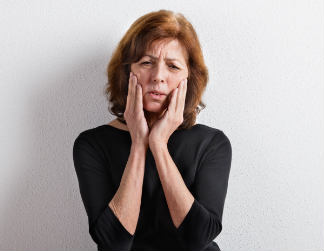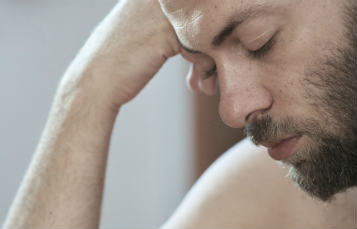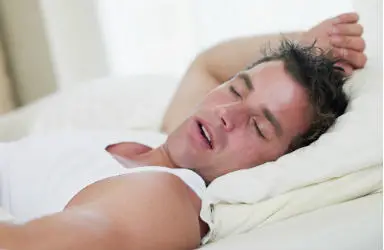The fields of medicine can be quite a complex territory to navigate for those of us who are not doctors, or medical practitioners, but are still curious people, or just want to gather more knowledge about subjects that interest us, that we may experience ourselves, or for whatever reason.
So let’s get to the point: are TMJ syndrome and Sleep Apnea connected? Well, the short answer is yes, that they can be. Sleep Apnea could be able to cause TMJ syndrome since the body is trying to combat Sleep Apnea but on the way could cause end up causing TMJ syndrome. I will explain how this can happen but first thing, first…
If you are suffering from TMJ syndrome then a TMJ pillow (what, a pillow for TMJ relief?! I was surprised too) could be able to ease the pain of TMJ syndrome as well as giving you a good night sleep. This type of people has smart technology which is designed to minimize pressure on your jaw as well as put your neck and head in a good position so that your jaw is at least not tempted to grind.

What is TMJ syndrome
TMJ (Temporomandibular Joint) syndrome is when there is a pain in the joint that connects the lower jaw to the skull in front of the ears, on both sides of the face, this is the TMJ. This, the muscles, skin etc. are what helps you to chew. TMJ syndrome is a disorder (shorten to TMD) and this could also be the reasoning why some people feel headaches, neck pains, ear pains, locked jaw, or a clicking, popping sound when they open or close their mouth.
There could be a few ways that one could end up getting TMJ such as getting or having a Microtrauma which is internal such as grinding your teeth or clenching your jaw. Accidents that affect the jaw directly could also lead to TMD especial if the jaw bone has been broken and the cartilage disc that is in the jaw has been dislocated.
What is Sleep Apnea
While we can say that TMJ syndrome targets the jaw, Sleep Apnea targets the lungs, while someone is sleeping. This means that a person would stop breathing many times while they sleep which could lead to a lack of oxygen to their bodies as well as suffocation, no breathing.
There are two types of Sleep Apnea and the first one that I will mention is known as OSA (Obstructive Sleep Apnea) which is quite common. OSA usually happens when the soft tissue behind the throat decides to take a nap and collapses blocking the airways.
The other type of Sleep Apnea is called Central Sleep Apnea which instead of the soft tissue by the throating taking a nap, it is the brain forgetting to signal the muscles used for breathing. This could be the result of having an unstable respiratory (breathing) control center.
How Do You Know You May Have TMJ Syndrome
TMJ syndrome could result in jaw joint pain, neck pain, shoulders pain or muscles spasms happening. You could also experience some hearing loss or ringing in the ears since TMJ syndrome does get mistaken for having an ear infection. And getting migraines and headaches could also be caused by TMJ syndrome and the jaw could be making sounds constantly while a person chews, or even yawns.
TMJ syndrome could also lead to feeling light-headed, having trouble swallowing, or even if you do shallow you may end up vomiting due to feeling nausea. So basically if you hear strange noises and chewing or yawning hurt, have a doctor take a look at you.
How Do You Know You May Have Sleep Apnea
Sleep Apnea may be a bit tougher to figure out because you would only notice many of the effects after you wake up and not that many during (like when comparing to TMJ syndrome).
However, one of the symptoms is waking up and gasping for air or even chocking. Another one of the symptoms can be loud snoring, morning a dry month (outside an aeroplane setting) or a sore throat, having a headache in the morning, and feeling sleepy, lacking energy throughout your day.
Your body may even decide not to sleep at all by giving you insomnia. If you get morning dry, sore mouth, and have gasped for air while sleeping or even if you just feel tired after long nights of sleep.
Plus, a lot of people like to point out people who snore so that may be more of a warning sign than a joke. Let a doctor have a look at you just to be on the safe side.

Can Sleep Apnea Cause TMJ Syndrome
While TMJ syndrome and Sleep Apnea are very different from each other, there is a connection between the two. The connection is that when the airway is blocked (which happens with OSA) the body can decide to open the lower jaw further in an attempt to open up the airway more.
This is why people snore, feel dry mouth and sore throat since they are sleeping with their mouths wide open. Opening the jaw widely throughout the nights causes stress and tension on the TMJ.
Is There Something People Can Do
If someone has TMJ syndrome then there are a few ways that can help ease the pain and even cure it such as oral splints, mouth guards, medicine such as anti-inflammatories or muscle relaxers, and you could even try to massage or stretch out the lower jaw.
But it would be advised to check with a professional on how to do the massaging and stretching so you do not make it worst. There is also surgery and Botox for extreme cases.
Sleep Apnea could also require surgery for extreme cases but you could use a CPAP machine (Continuous Positive Airway Pressure Therapy) which is basically a gas mask that goes over your nose and blows gentle pressurized air through your airway to stop the soft tissue behind your throat from collapsing.
And you could also to Oral appliance therapy.

Conclusion
So, How are TMJ Syndrome and Sleep Apnea Connected?
TMJ syndrome and Sleep Apnea can have a chance to be connected but the best thing to do even if you have a slight suspicion that you could have one or the other, or both is to go to a doctor and check straight away so that you can treat it before it gets worse.

